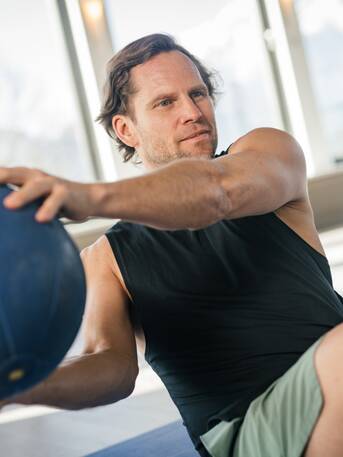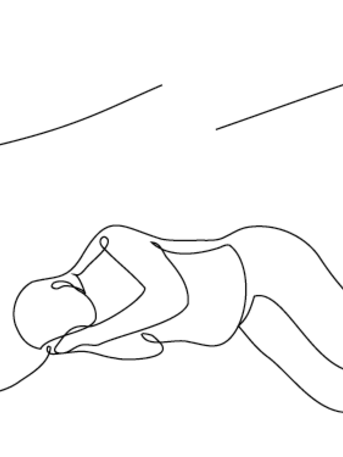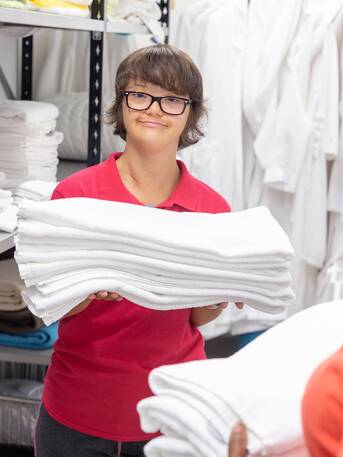Diagnostics
Our body is a highly complex system and is in constant internal dialogue. As F.X. Mayr has taught us, it is primarily the intestine that influences our overall well-being and health. Even though it functions autonomously for the most part, it is in permanent exchange with one organ: the brain.
It is a special relationship that connects two smart minds in our body. Hence the term "gut-brain axis". The two communicate via messenger substances, microbial metabolites and nerve pathways. It is for this reason that neurological disorders and neurodegenerative diseases often have a negative effect on people. The Neuro-Fit programme at Park Igls aims to provide support to people with degenerative conditions such as Parkinson's disease or multiple sclerosis. Dr Michael Spiegel, a specialist in neurology, is available as a consultant alongside the Mayr Doctors at Park Igls.
It seems as if the gut and brain are in constant dialogue, with the gut possibly having more to say to the brain than vice versa.
Peter Gartner: Neuro-Fit is aimed at patients with neurodegenerative diseases in the early stages. Usually, they have already been diagnosed and we provide therapy. Sometimes people come to us with a suspected condition that we then either confirm or rule out. We cooperate with specialists in a wide range of fields and consult them when a diagnosis or second opinion is required. We greatly appreciate our collaboration with Innsbruck University Hospital. One of our consultants from there is Michael Spiegel, an expert in neurology. He comes to us and works with our guests at the hotel.
Michael Spiegel: Basically, all I need is a lamp to test light reflexes, a reflex hammer and my hands. And even though a comprehensive medical history has already been completed at Park Igls, every appointment starts with a conversation with the person in order to give me an overview of the person's overall condition. This is then followed by a physical examination from head to toe, standing and lying down. The great thing about neurology is that it takes just a few simple steps to pinpoint the source of the complaint. If additional imaging is required, an ultrasound is available directly at Park Igls, or we make an appointment with a radiologist. Neurological examinations are generally very efficient and pain-free.
Gartner: Neurological complaints do not disappear within weeks, and many conditions cannot be fully cured. But we can give people the tools they need to improve their quality of life in the long term. Based on each person’s specific diagnosis, we give them an optimal treatment plan and help them to better understand themselves and their bodies.
Gartner: The foundation of each stay is always the Modern Mayr Cure. This is because we believe – and there is now increasing scientific evidence for this – that the gut is the root of health. Usually, the intestinal flora of people is compromised, and we bring it back into a healthy balance over the course of a stay with us. This also helps to improve other existing symptoms in the long term. The Neuro-Fit package also includes massages to loosen up muscles as they are often affected by neurodegenerative conditions. Physiotherapy is also included. Our therapists are trained in neuro-physiotherapy and can help patients to improve their movement and mobility patterns, for example. The programme also comprises Feldenkrais sessions, which provide additional support in internalising new movements.
Spiegel: Physical activity is extremely important for neurodegenerative diseases. Neurological conditions often lead to people feeling restricted in their movements or they experience pain. That's why people often avoid certain movements and activities, but the exact opposite makes sense. A stay at Park Igls is all about regaining confidence in your body and allowing it to cope with strain and stress. The brain needs to be constantly stimulated in order to relearn and consolidate certain processes.
Gartner: Conversational therapy is also an important part. Many neurodegenerative conditions cannot be cured, and that gets to you. You may feel trapped in your own body. This is why support from clinical psychologists who are well-versed in neurology is extremely important. In fact, the counselling doors at Park Igls are always open to all guests.
Gartner: There are more and more studies that focus on the connection between the gut, the microbiome, the related metabolic situation and the central nervous system. Increasing evidence suggests that strengthening the microbiome supports the treatment of neurodegenerative conditions.
Spiegel: There are studies that clearly show that the bacterial composition in our gut has a decisive influence on our health and even our personality. Special diets such as the Mayr Cure alter the microbiome within less than 24 hours and have a positive influence on both body and mind. The axis between brain and gut is therefore clearly present.
Gartner: Henning Sartor, who I would say is one of the best research brains at the Mayr Society, has postulated that we have two brains: our primary brain in the gut, from which our secondary brain has developed in the course of evolution.
Spiegel: The nerve structures and receptors of the brain and gut are actually quite similar. At the same time, both work completely independently of each other.
Gartner: We Mayr Doctors definitely do. It seems as if the gut and brain are in constant dialogue, with the gut possibly having more to say to the brain than vice versa.
The nerve structures and receptors of the brain and gut are actually quite similar.
Neurologist and consultant physician at Park Igls
Dr Michael Spiegel
Born in Austria’s westernmost province of Vorarlberg, Michael Spiegel received his Doctor of Medicine degree in 1997.
Between 1997 and 2005, he completed specialist training in neurology at Innsbruck University Hospital, where he worked as a senior physician from 2005 to 2010. During this time, he held leading positions in various fields of neurology, including the emergency department, neurological outpatient clinics and stroke aftercare.
From 2008 to 2010, he was the managing senior physician at the University Hospital Neurology Department and chairman of the training programme at the Austrian Society of Neurology. Since August 2010 he has run his own neurology practice in Innsbruck.
This specialised programme helps for degenerative diseases of the nervous system such as Parkinson’s or multiple sclerosis.








